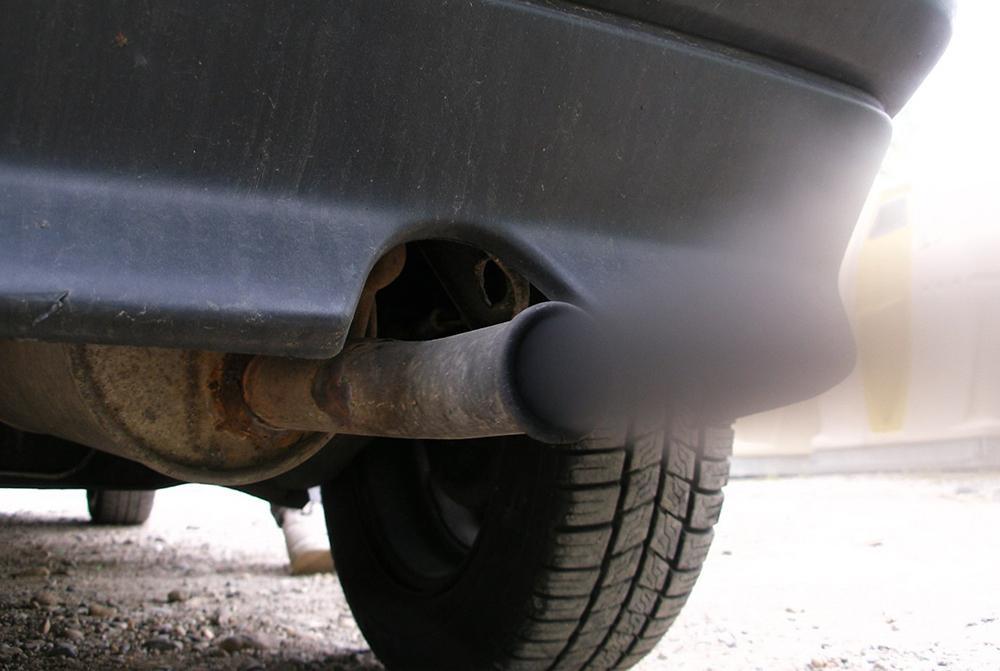COVID slowdown makes action on gas-guzzlers even more important

Phasing out the most polluting vehicles now could save 97million tonnes CO2 by 2050. New research highlights how COVID-delayed car purchasing could mean a fleet of high-emission gas-guzzlers remain on British roads well into the 2030s, undermining efforts to transition to zero emission vehicles by 2030. It calls for tough action to deter sale of the most polluting cars well ahead of the 2030 petrol/diesel ban.
In the Review of Energy Policy 2020 published earlier this week, the UK Energy Research Centre (UKERC) Co-Directed by Christian Brand (Associate Professor at the University of Oxford), looks at the impacts of COVID-19 on the energy system, and the role that energy policy could play in the UK's economic recovery. It provides analysis of a number of areas that will be key to success in meeting the UK's net zero target. A key concern is the impact of COVID on the uptake of zero emission vehicles. Other issues include a major skills gap in energy efficiency.
Accelerating the transition to zero carbon cars
In the latest advice to government from the Climate Change Committee, electric vehicle roll out accelerates to 50% of new cars by 2025. However, COVID-19 led to a downturn in car sales of 30%. UKERC analysis shows that this downturn may result in older more polluting cars staying on the roads for longer, and delays to the uptake of greener vehicles. Under current policies, consumers will be able to buy the most polluting vehicles right up to the phase out date of 2030.
With no accompanying tax or road charges on the most polluting vehicles, the call to ban fossil fuel cars could spur car manufacturers to push the sale of the most polluting vehicles, such as SUVs, over the next five to ten years, creating higher fuel consumption and carbon emissions for years to come.
To counter this, UKERC researchers explored what impact a purchase tax on the most polluting cars could have on CO2 emissions. Starting in 2021, a new policy would levy a 50% tax on the highest emitting vehicles, such as large SUVs and executive cars running on fossil fuels, incentivising consumers to buy smaller, less polluting models.
The policy could save 32 million tonnes of CO2 in tailpipe emissions between 2020 and 2030, and a further 65 million tonnes between 2031 and 2050. These cumulative 2020-50 savings equate to around 1.6 years' worth of current UK car CO2 emissions. These savings are due to both increased sales of electric cars and a shift towards more efficient petrol and diesel cars during the 2020s. By 2025 very low emission or electric cars become the 'natural choice' for buyers, and their market share reaches 43%.
Setting a clear, phased approach would provide motor manufacturers with the market certainty they are calling for, and steer consumers and fleet buyers towards greener vehicles.
Dr Christian Brand, UKERC Co-Director said:
"Bringing forward the ban on the sale of combustion engine vehicles to 2030 is good news. But there are short-term consequences. To keep within 1.5 degrees as per the Paris Agreement, what really matters is what happens in the next ten years. Mass-buying gas-guzzlers like large SUVs in the 2020s means the benefits of later decarbonisation efforts, anchored around the 2030 phase-out, could in effect be cancelled out. We need a gradual, market transformation approach to avoid these pitfalls. Taxing the most polluting vehicles, would accelerate the green transport revolution, and form a cornerstone of a green recovery from COVID-19."
Professor Rob Gross, UKERC Director said:
"Policies to promote electric vehicles, alongside the roll out of charging station infrastructure, will be essential to meeting our carbon targets. However, this is only one side of the coin. We also need action to remove the least efficient cars from the market. This will reduce overall emissions faster. It is vital to ensure that as the economy and car sales recover this goes hand in hand with a transition to cleaner cars.
Summary recommendations
Green jobs and skills: COVID-19 recovery packages offer the potential to combine job creation with emissions reduction. A national housing retrofit programme would be a triple win, creating jobs, reducing carbon emissions and make our homes more comfortable and affordable to heat. However, UKERC research finds that there are significant skills gaps associated with energy efficient buildings and low carbon heat. UKERC calls for a national programme of retraining and reskilling that takes advantage of the COVID downturn to re-equip building service professions with the skills needed for net zero.
Heat: UKERC research calls for action on heat, to deliver the net zero technologies that we know work - insulating buildings and rolling out proven options. We need to end delay or speculation about less-proven options. Analysis is consistent with recent advice from the CCC that heat policy should focus on electrification whilst exploring options for hydrogen. We need to break the pattern of ad hoc and disjointed policy measures for heat and buildings, and develop a coherent, long-term strategy. This would be best achieved as an integral part of local and regional energy plans, involving local governments as coordinating agents. The aspirations for heat can't be realised unless we also take action on the skills gap.
Power system investment and operation: The scale of investment in the power system required over the coming decade is huge. A big challenge is market design. We need a market that can incentivise investment in low carbon power and networks at least cost whilst also providing incentives for flexibility. Output from wind and solar farms will sometimes exceed demand and other times fall to low levels. The right mix of flexible resources must be established to deal with variable output from renewables, with the right market signals and interventions in place to do this at least cost.
Brexit: As the UK leaves the EU on the 1st January it will lose many of the advantages of integration. With new regimes for carbon pricing, trading, and interconnection yet to be agreed, there will be a high degree of uncertainty in the near to medium term. Given upward pressure on energy costs, delays to policy, and this uncertainty surrounding new rules, the overall effects of Brexit are not positive for UK energy decarbonisation.
Societal engagement with energy: Achieving net zero in 2050 will entail significant changes to the way we live, what we eat and how we heat our homes. The COVID-19 pandemic has shown that when faced with a threat, society can change rapidly. Engaging society with the net zero transition also needs to change, it needs to be to be more ambitious, diverse, joined-up and system-wide. It also needs to be honest about the scale of change required.
The UK Energy Research Centre (UKERC) carries out world-class, interdisciplinary research into sustainable future energy systems. Our whole systems research informs UK policy development and research strategy. UKERC is funded by the UK Research and Innovation, Energy Programme.
Christian Brand is an Associate Professor in Transport Energy and Environment at the Environmental Change Institute (ECI) and the Transport Studies Unit (TSU) within the School of Geography and the Environment at the University of Oxford. Find out more about his work.
The full UKERC Review of Energy Policy 2020 is available online.
COVID slowdown makes action on gas-guzzlers even more important
Phasing out the most polluting vehicles now could save 97million tonnes CO2 by 2050, new research published by the UK Energy Research Centre finds. Co-Directed by Christian Brand the Centre looked at the impacts of COVID-19 on the energy system, and the role that energy policy could play in the UK's economic recovery. Discover their recommendations.

